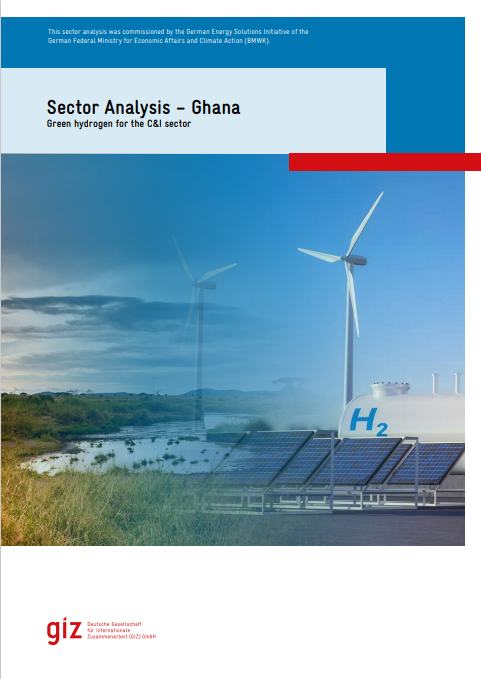Assessing Ghana’s green hydrogen potential for the commercial & industrial sector
This sector analysis explores Ghana's hydrogen market, offering cost estimations for producing green hydrogen using renewable energies and guidelines for starting hydrogen-related businesses. Targeted at German and European companies, it focusses on partnerships with local enterprises integrating hydrogen into industrial processes.
With its strategic location, relatively developed infrastructure, tax incentives, and abundant renewable resources, Ghana continues to attract international investors after an economic slowdown in 2022-2023. Green hydrogen and its derivatives offer benefits such as decarbonization, energy storage, renewable energy integration, energy security, and economic opportunities. The analysis details production processes, input requirements, and associated costs, along with the current supply and demand for hydrogen, ammonia, and methanol in Ghana.
The abundant renewable resources—solar, wind, hydro, and biomass—can be harnessed to produce green hydrogen. The focus on solar-based hydrogen includes cost details in case studies. Business cases estimate system sizing, costs, and the levelized cost of hydrogen (LCoH) based on local solar resources, demonstrating green hydrogen's use in ammonia production and food manufacturing. Ghana's infrastructure and proximity to major shipping routes enhance its suitability for hydrogen business development. The Ghana Investment Promotion Centre (GIPC) Act and the Free Zone Act offer incentives like custom duty exemptions and a 10-year tax holiday. Additionally, Ghana's energy and climate policies support renewable energy and greenhouse gas emission reduction.
